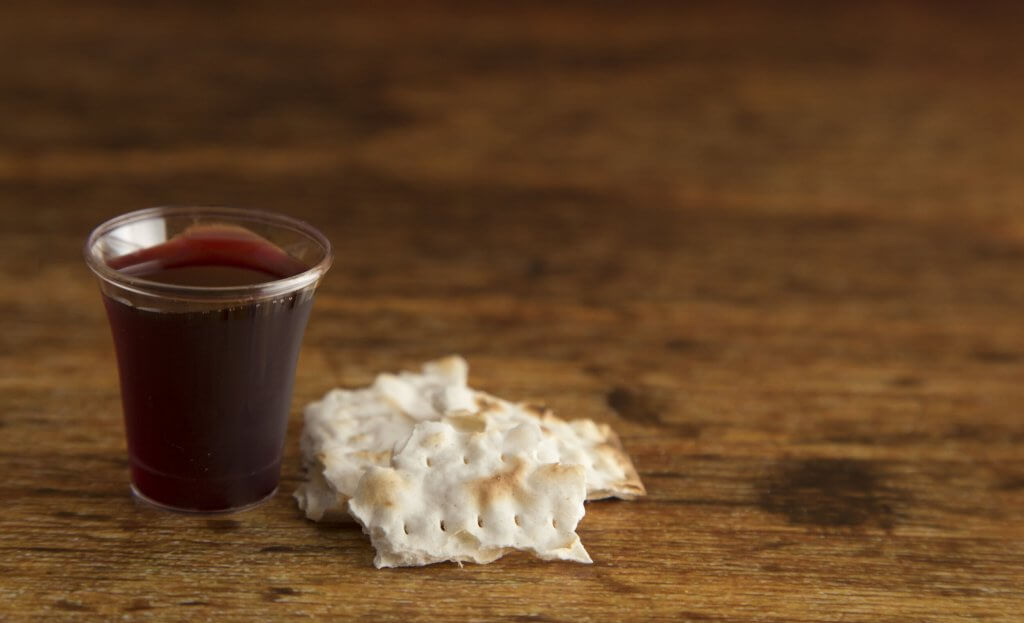
In the church I grew up in, Deacon Heart and his team would go down the aisles with hole punchers before Communion. Each congregant was given a membership card. It was the size of a business card with boxes for each month of the year at the bottom. Before Communion started, the deacons went through the congregation and punched a hole in the box for that month.
If your box was hole-punched, it indicated that you were permitted to receive the bread and cup. If it wasn’t, you were not to take the Lord’s Supper that day. I did not know all the various reasons why a card may not get punched. But one specific reason that was made clear was that you were not to receive Communion if your card had not been punched in the last three months. That, in theory, meant that you had not been to church in ninety days. Your membership would then need to be reinstated.
These restrictions on who should or should not receive the Lord’s Supper may seem crazy to you. Permit me to describe them with a few other words that may shock you even more: Baptist. Historic. Biblical.
Members of the church at Corinth abused the Lord’s Supper. The rich lorded it over the poor. Some received the bread and cup greedily, leaving nothing for others. Certain members overindulged and became drunk at the Lord’s Table. Whatever was going on, it was not the Lord’s Supper (1 Corinthians 11:20). The Apostle Paul spent half a chapter addressing this sacrilege.
1 Corinthians 11:17-34, the full mention of the Lord’s Supper in the New Testament, is corrective, not instructive. Paul confronts the profaning of the Lord’s Supper and calls on the members to change their ways or not receive Communion. “Let a person examine himself, then,” the apostle exhorts, “and so eat of the bread and drink of the cup” (1 Corinthians 11:28).
In the late seventeenth century, this process would be called “fencing the table.” That terminology is several centuries old. The practice it describes can be traced back to the New Testament. Pastors from that period spoke often about “administration.” But they meant something different from what we think of as church administration. They visited the homes of their members and interviewed their neighbors to see if the members were genuinely following Christ. From these interviews, they determined who were communicants or non-communicants at the Lord’s Table. This was their biblical view of church administration.
The faithful administration of the Lord’s Supper requires that the pastors “fence the table” – clearly stating who should and should not receive Communion.
Of course, non-Christians should not receive Communion. Paul explains, “For as often as you eat this bread and drink the cup, you proclaim the Lord’s death until he comes” (1 Corinthians 11:26). You cannot “proclaim the Lord’s death” if you do not believe he died, rose from the dead, and is coming again. Likewise, those who are not baptized should not receive Communion. Baptism is how Christ commands believers to go public with their faith in him (Matthew 28:18-20).
Furthermore, those who are not participating members of the local church should not receive Communion. The Lord’s Supper is a family meal, not a drive-thru window. It does not honor Christ for you to show up on the first Sunday to receive Communion only to neglect the assembly of the saints the rest of the month. Those who do so “despise the church of God” (1 Corinthians 11:22).
Those in open and unrepentant sin should not receive Communion. Thus, those who are under church discipline (Matthew 18:15-20) are “excommunicated.” They are not excluded from attending worship services, but they are excluded from sharing the Lord’s Supper. Yet it does not require a congregational censure for one to know they are in sin. As we examine ourselves (1 Corinthians 11:28), our consciences – convicted by the Holy Spirit – will tell us the truth about ourselves. Imagine how profane it is to publicly celebrate Christ’s death for your sins, while you privately celebrate the sins for which he died. For this reason, some in the church at Corinth were weak and ill, some had died (1 Corinthians 11:31).
It is the sacred and solemn duty of the pastors to fence the table at Communion. It is your holy and humble obligation to examine yourself before you eat the bread and drink the cup. May the Lord help each of us to approach the Lord’s Table “with clean hands and pure heart” (Psalm 24:4).
